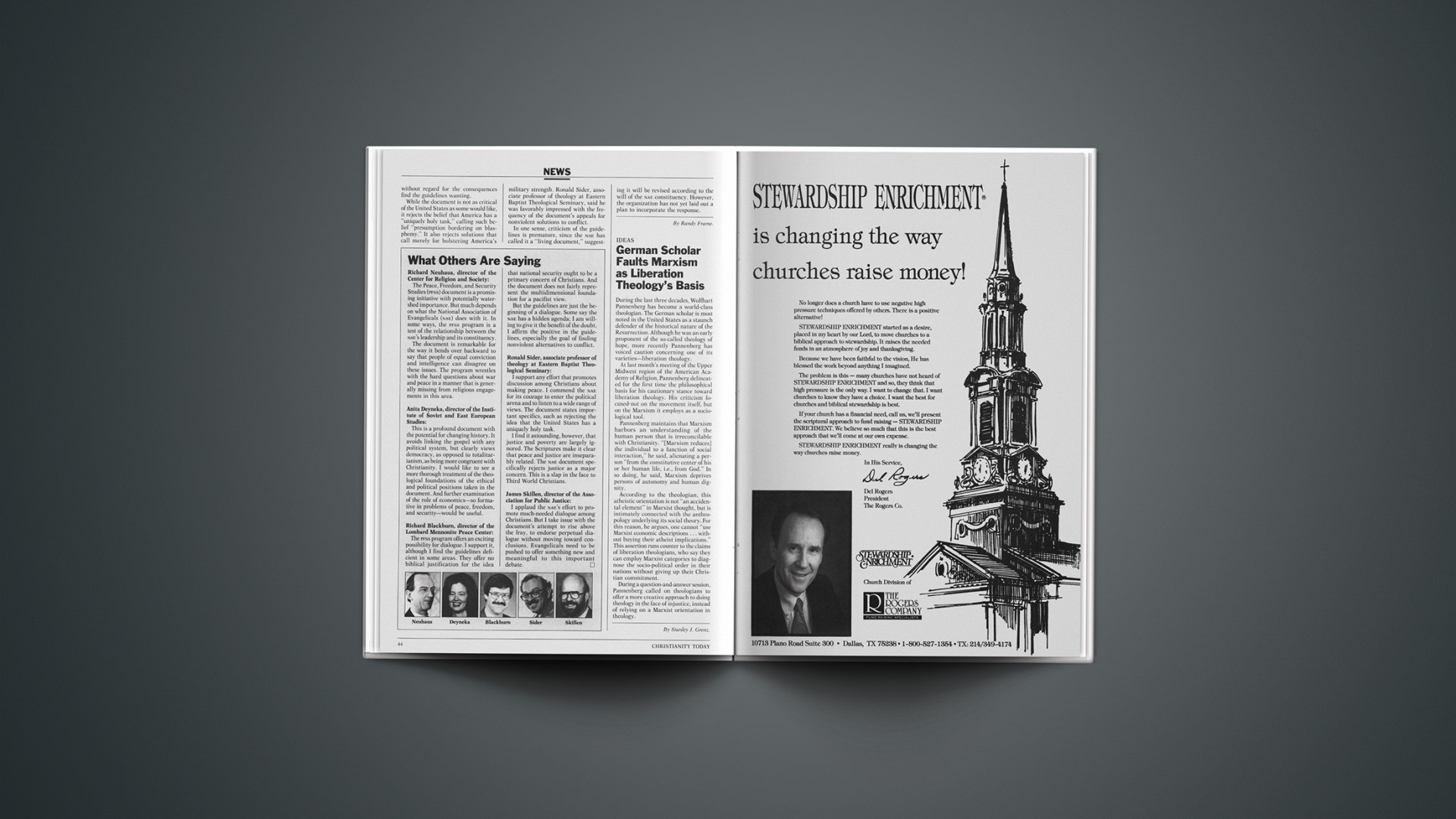During the last three decades, Wolfhart Pannenberg has become a world-class theologian. The German scholar is most noted in the United States as a staunch defender of the historical nature of the Resurrection. Although he was an early proponent of the so-called theology of hope, more recently Pannenberg has voiced caution concerning one of its varieties—liberation theology.
At last month’s meeting of the Upper Midwest region of the American Academy of Religion, Pannenberg delineated for the first time the philosophical basis for his cautionary stance toward liberation theology. His criticism focused-not on the movement itself, but on the Marxism it employs as a sociological tool.
Pannenberg maintains that Marxism harbors an understanding of the human person that is irreconcilable with Christianity. “[Marxism reduces] the individual to a function of social interaction,” he said, alienating a person “from the constitutive center of his or her human life, i.e., from God.” In so doing, he said, Marxism deprives persons of autonomy and human dignity.
According to the theologian, this atheistic orientation is not “an accidental element” in Marxist thought, but is intimately connected with the anthropology underlying its social theory. For this reason, he argues, one cannot “use Marxist economic descriptions … without buying their atheist implications.” This assertion runs counter to the claims of liberation theologians, who say they can employ Marxist categories to diagnose the socio-political order in their nations without giving up their Christian commitment.
During a question-and-answer session, Pannenberg called on theologians to offer a more creative approach to doing theology in the face of injustice, instead of relying on a Marxist orientation in theology.
By Stanley J. Grenz.










